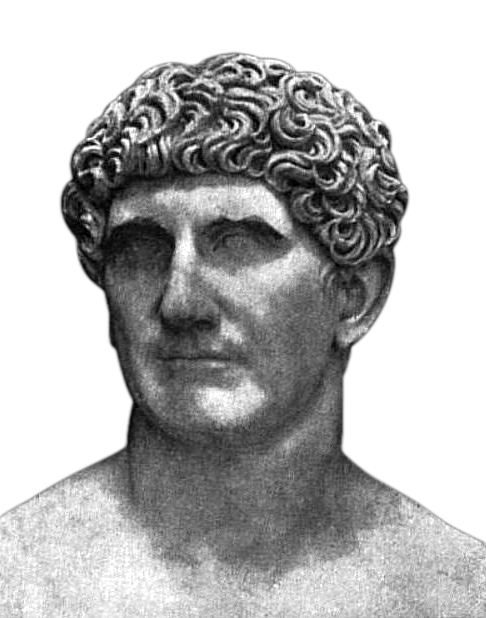The Walk of Ideas designed by
Scholtz & Friends to celebrate
the invention of modern printing.
|
On the other hand, maybe some ideas should have been lost. Violent revolutions and reformations grew out of humanistic ideas that spread quickly with the ability to mass produce writings. Dictators and despots controlled the masses with propaganda. Many lives were lost and countries were left in shambles, such as France after its revolution.
 |
| Bust of Mark Antony |
When I was in junior high, I was surprised to learn about a new form of the English language that included acronyms like lol and ttyl. I also noticed that those who spoke in that way were the same people that owned cell phones. Most would attribute this sudden change in communication style to the fact that people had developed shortened words and letter combinations to text each other faster and express feelings that normally are understood by voice inflection or facial expressions. I didn't like the change, but those who used it typically commanded attention. Their sprezzatura seemed to come from an ability to command the language as influenced by modern technology, possibly in the same way influential people, such as Luther and other reformers, took advantage of the printing press.
 The changing technology continually influences how we express ourselves and influence those around us. We want our ideas to spread and live after and beyond just us. Seeking to achieve this goal in turn influences the technology of communication. We now text with full keyboard touchscreens and post ideas and experiences in "public" online areas. The changes in how we communicate and what we communicate change with the medium of communication. The outcomes may vary as they have in the past from revolutions and dictators to improved lifestyle and great minds.
The changing technology continually influences how we express ourselves and influence those around us. We want our ideas to spread and live after and beyond just us. Seeking to achieve this goal in turn influences the technology of communication. We now text with full keyboard touchscreens and post ideas and experiences in "public" online areas. The changes in how we communicate and what we communicate change with the medium of communication. The outcomes may vary as they have in the past from revolutions and dictators to improved lifestyle and great minds.
I really like how you tied these ideas into modern day life through texting. We also brought that up in our group, and discussed how it is essentially continuing the work started with the printing press so long before.
ReplyDeleteOur group had the printing press as its topic in class, and we also discussed how this was their technology. Imagine the same response to internet, texting, email or whatever. It was a huge advancement, and really allowed the reformation to blossom and become what it was.
ReplyDelete